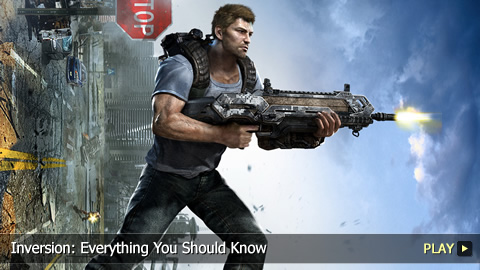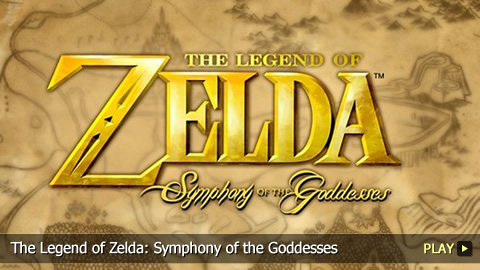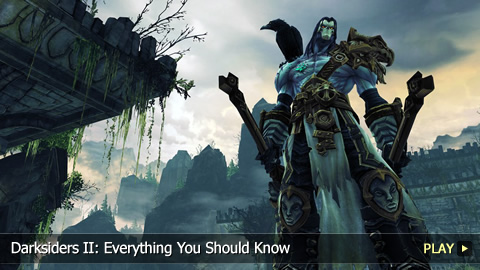Video games are about interactivity, overcoming obstacles, and above all, having fun. So… why do they have stories?
Welcome to Story Mode, the series that looks at how games tell stories. For our first instalment, we’re tackling a pretty big question that has surrounded the discussion of video games as art for as long as people have been talking about games at all: does a game’s story really even matter? Does the story a video game is telling have as much of an impact on the player as the actual mechanics and gameplay elements? Well, considering this is a series about stories in games, it’s probably fairly obvious where we stand on the issue, but we’ll get there when we get there.
There’s a reason most video game adaptations tend to be pretty bad. Take away the interesting and fun mechanics, and most video game stories fall pretty flat if forced to stand on their own.
That’s because – for the most part – a game’s narrative isn’t the thing that dictates the gameplay. In fact, often times, it’s the other way around. The gameplay and mechanics inform the kind of story the game will tell. Why do you think a huge chunk of the games in the RPG genre take place in Fantasy worlds? Well, Fantasy stories lend themselves really well to the kind of mechanics found in RPGs. It also has to do with the influence that Fantasy tabletop role-playing games like Dungeons & Dragons have had on the genre.

Tetris doesn’t even have a story, and it’s among the best selling games of all time – so obviously, story can’t be that important, can it? If you were to explain the narrative beats of Super Mario Bros. to someone who’d never heard of it, they would think you were describing some sort of abstract art piece, not a majorly successful piece of pop culture.
Well, if we want to answer this question and settle this debate once and for all, we’ll have to make a few distinctions and define exactly what we mean when we talk about a game’s “Story.â€
First thing’s first: a game is not its story… but that’s also true of pretty much every other visual medium as well: a comic book, movie, or episode of a television series have a lot more going on than just the story each is telling. A good example is the difference between a screenplay a movie. You can hand two directors the same screenplay and they’ll likely go off and make two drastically different movies. The screenplay is the blueprint; the foundation on which to add sound, images, performances, and other essential elements of the medium. The same goes for games – it’s the narrative designer’s job to create a story that provides motivation to the player and ties together all of the interesting and fun mechanics that the game designers are cooking up, but a good story doesn’t equal a good game, just like a good screenplay doesn’t guarantee a good movie – a game is a culmination of different elements, and the story is just one of those elements.

A game’s story is also more than just the cutscenes and dialogue. A games’ setting can communicate a ton of narrative information purely through visuals. Think about it: just looking at a game’s environment can deliver a ton of information about tone and genre, and informs how you engage with it. Take an open-world game like Fallout 4 as an example. If you knew nothing about it, you could probably gather quite a bit of information just by looking at its barren landscape.

There’s also the concept of “Emergent Narratives†– which is just a fancy way of saying “the stories you create as you interact with a game.†Did your Sims drown because you removed their way out of the pool? That’s an “Emergent Narrative.†That violent rampage you went on in GTA? Emergent Narrative. Aimlessly running and climbing your way through Hyrule in Breath of the Wild? You guessed it: that’s an Emergent Narrative. It’s not something that was written down as a story beat by the game’s narrative designer; it’s something that happened because of the way you choose to interact with the game – it’s the personal story of your individualized experience with the game world.

Earlier, I said that if you took away a game’s mechanics, its story wouldn’t be able to stand on its own, which is why movie adaptations so often fall flat. Well, that’s because a game’s narrative is informed by its mechanics and vice versa. The two are intrinsically tied together. Game stories are conceived with interactivity and gameplay in mind. The fact that movie licensed games are often terrible isn’t used as proof of the shortcomings of film as a vehicle for storytelling, so why would the opposite be true?

So, back to the question at hand: do video game stories matter? Well, if we’ve learned anything, it’s that most games can’t help but have stories. Setting your game in an environment, having playable and non-playable characters who inhabit that environment, and being able to move through and interact with the environment are all part of the unique storytelling elements that games have to offer. The challenge for narrative designers isn’t to make games more cinematic, it’s to find interesting ways to double down on the storytelling aspects that are unique to games, and having a more fluid definition of what it means for a game to have a good, meaningful story.




















